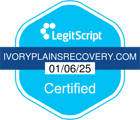As a parent, your children are a main priority no matter what age they may be. You may have faced challenges along the journey of parenthood but may not have been prepared to face the fact that your adult child has a drinking problem. This situation can be emotionally draining, and you may not know what steps to take to help your child and yourself navigate this difficult process.
Facing the reality that your adult child has a drinking problem is difficult, but taking action is crucial for their health and well-being. Recognizing the signs of a drinking problem and approaching the situation with empathy and understanding can make a significant difference. Remember that recovery is a journey, and your support can be a vital factor in your child’s success in overcoming their addiction.
Recognizing the Signs of a Drinking Problem
The first step in addressing your adult child’s drinking problem is recognizing the signs. Excessive or problematic drinking can have serious consequences. Look for the following signs:
- Increased frequency: If you notice that your child is drinking more frequently than before, it could be a red flag. Frequent alcohol consumption can indicate a growing dependency.
- Binge drinking: Binge drinking, defined as consuming a large amount of alcohol in a short period, is a significant concern. It can lead to health issues and risky behaviors.
- Neglecting responsibilities: If your adult child neglects their responsibilities, such as work, school, or family obligations, because of their drinking, it’s a cause for concern.
- Legal problems: Frequent encounters with the law, such as DUIs or public intoxication charges, are clear indicators of a drinking problem.
- Relationship issues: Difficulties with friends and family due to drinking, including arguments, isolation, or strained relationships, are common signs of a problem.
- Physical and mental health decline: Alcohol abuse can lead to physical health problems like liver or kidney damage and mental health issues like depression or anxiety.
- Loss of control: An inability to control their drinking, such as drinking to the point of blacking out, is a clear sign of a problem.
- Increased tolerance: If your child needs to drink more to achieve the same effect, it suggests that their body is becoming tolerant to alcohol; dependence and addiction can quickly follow increased tolerance.
- Withdrawal symptoms: Experiencing withdrawal symptoms when they try to quit or reduce drinking, like sweating, shaking, or nausea, is a severe sign of alcohol dependence.
Confronting Your Adult Child
Once you recognize the signs of a drinking problem in your adult child, it is crucial to have a clear plan. When confronting your child, you will want to be understanding so you do not push them away. You may want to consider the following when addressing the issue.
Choose the Right Time and Place
Choosing the right time and place to confront your adult child can make a difference in how they react. You will want to find a quiet, private space to talk without distractions or interruptions. Choosing a time when you and your child are calm is essential. Avoid confronting them when they are intoxicated or angry.
Show Your Concern, But Do Not Blame
Start the conversation by expressing your concern for their well-being. Avoid blaming or accusing them, as it may lead to defensiveness. You also do not want to accept the blame for their drinking problem yourself.
Offer Your Support
Let your child know you are there to support them in seeking help. Emphasize that your concern comes from a place of love and care. Give your child a chance to express themselves. Listen without judgment, and try to understand their perspective. This can help build trust and open lines of communication.
Avoid Enabling
While offering support is crucial, you will want to avoid enabling their drinking habits. You do not want to provide financial assistance that may be used for alcohol or cover up the consequences of their actions.
Research Treatment Options
Before the conversation, do your research on treatment options for alcohol addiction in your area. This can be a helpful resource for your child if they are willing to seek help. Some recovery centers offer a range of options, such as:
- Inpatient treatment
- Outpatient treatment
- Detox services
- Family support program
Set Boundaries
If your adult child is living with you, set clear boundaries regarding their drinking behavior. You will want them to understand that there are consequences for their actions. Boundaries may consist of:
- No drinking in your home.
- If they are intoxicated, they cannot stay at your house.
- They cannot be disrespectful or argumentative with you or other family members.
- You will not tolerate lying.
Seek Professional Help
If your child’s drinking problem is severe, consider involving a therapist or counselor specializing in addiction. They can provide guidance and facilitate family discussions. In some cases, they may be able to help organize an intervention.
Ignoring or avoiding the fact that your child has a drinking problem will not make it go away. Addressing the issue when you notice the signs can help prevent serious consequences from occurring. No matter how long the problem has been going on, addiction treatment will benefit not only your adult child but also the whole family.








